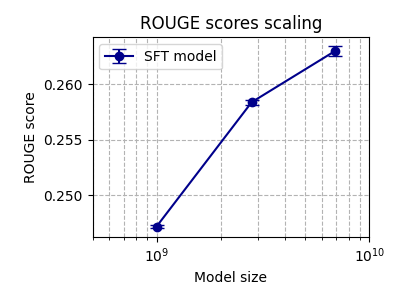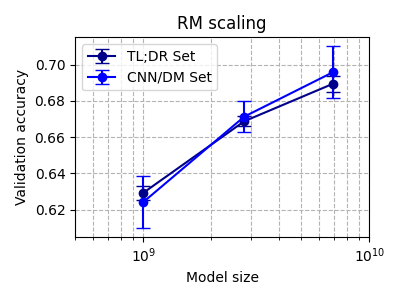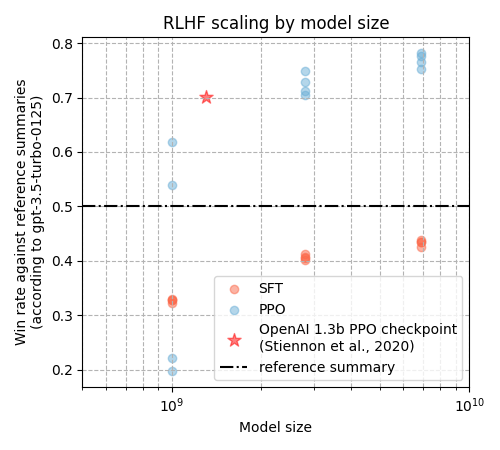The follow-up work of https://huggingface.co/blog/the_n_implementation_details_of_rlhf_with_ppo
Prerequisites:
- A slurm cluster of 8xH100 box (we are thinking of adding LORA)
Install the dependencies
# with poetry (recommended)
poetry install
# or with pip
pip install -r requirements.txt
python visualize_tokens.py
To run a hello world example, you can run the hello_world.sh script. For the full scaling behaviors experiment, you can run
mkdir -p slurm/logs
sft_job_id=$(sbatch --parsable sbatches/sft.sbatch)
rm_job_id=$(sbatch --parsable --dependency=afterany:$sft_job_id sbatches/reward.sbatch)
ppo_job_id=$(sbatch --parsable --dependency=afterany:$rm_job_id sbatches/ppo_left_padding.sbatch)
The command above runs end-to-end RLHF experiments with 4 random seeds. We then run the following scripts to fetch experiments and generate plots
cd eval
python sft_rm_scale.py
python rlhf_scaling_plot.py
| Rouge Score (sft.py) | Reward Model (reward.py) |
|---|---|
 |
 |
| RLHF Policy (ppo_left_padding.py) | |
 |
We use our pre-built TL;DR datasets:
- SFT dataset: vwxyzjn/summarize_from_feedback_tldr_3_filtered_oai_preprocessing_1706381144
- Preference dataset: vwxyzjn/summarize_from_feedback_oai_preprocessing_1706381144
You can optionally build them yourself with
poetry run python summarize_from_feedback_details/tldr_dataset.py \
--base_model=EleutherAI/pythia-1b-deduped \
--tldr_params.max_sft_response_length=53 \
--tldr_params.max_sft_query_response_length=562 \
--tldr_params.max_rm_response_length=169 \
--tldr_params.max_rm_query_response_length=638 \
--cnndm_params.max_rm_response_length=155 \
--cnndm_params.max_rm_query_response_length=2021 \
--tldr_params.padding="pad_token" \
--cnndm_params.padding="pad_token"
# --push_to_hub # you can optionally push to hubNote that these datasets use the same OpenAI processing as the original paper (summarize-from-feedback/tasks.py#L98-L165); it does things like
- make sure query is only 512 tokens (pad if shorter, and ''smartly truncate'' if longer, e.g., like it will truncate at before the last
\ninstead of a hard truncation.) - make sure response tokens is limited